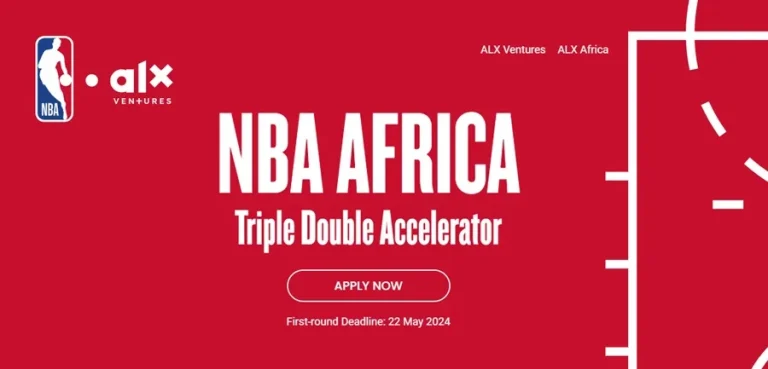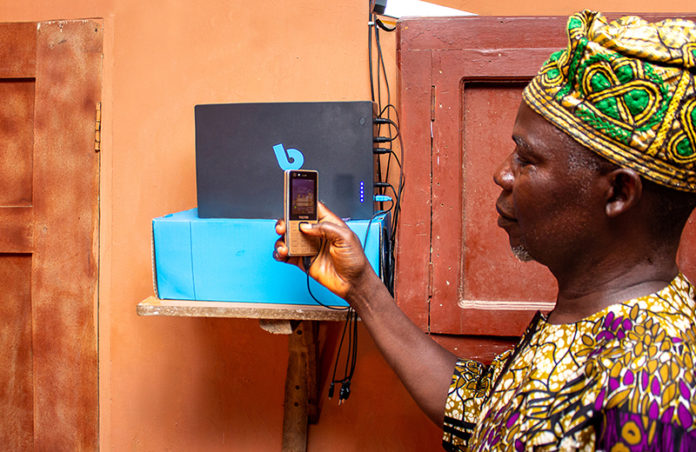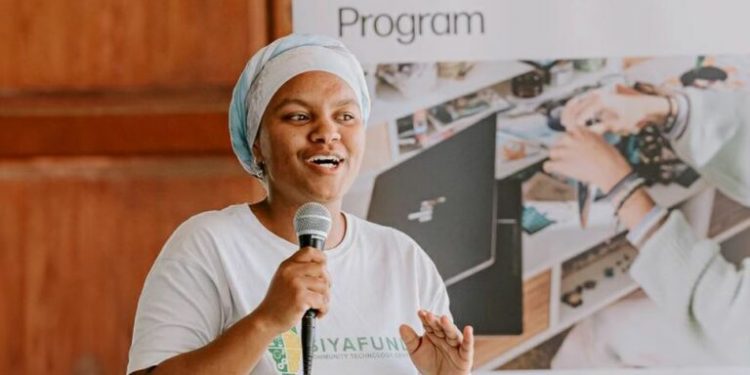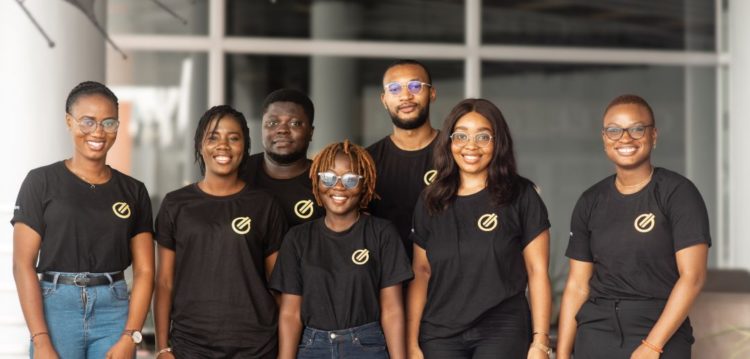Coming of age – delving into a record-breaking year of African tech startup funding
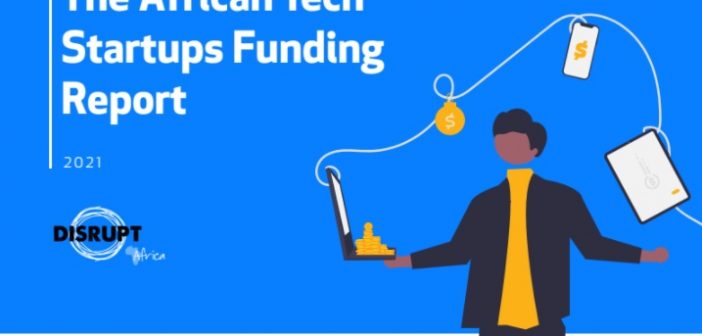
Whatever way you look at it, whatever figures you believe, whatever methodologies you use, one thing is certain: 2021 was the best year ever for tech startup funding in Africa, with more startups raising more money from more investors than in any previous year.
According to our data here at Disrupt Africa, not only was the US$1 billion ceiling broken for the first time, but the US$2 billion mark was also broken in a year that saw unicorns minted and records broken.
We’ve always predicted an extremely bright future for the African startup ecosystem at Disrupt Africa, but I don’t think we imagined how bright it would burn, and how quickly, when we released the first edition of our annual funding report in January 2016.
According to the seventh edition of our African Tech Startups Funding Report, which is freely available to all as part of an open-sourcing initiative with Novastar Ventures, MFS Africa, Quona Capital, 4Di Capital, MEST Africa, and Future Africa, 564 African tech startups raised a total of US$2,148,517,500 in 2021. Let’s look at the numbers.
Growth of a hockey stick for an exciting scene
In terms of funded ventures and total secured capital, the ecosystem as a whole has seen incredible growth, while individual markets and verticals have also had banner years. The number of funded African startups increased by 42.1% from 397 in 2020, and the funding total more than tripled – up 206.3% – from US$701,460,565 in 2020.
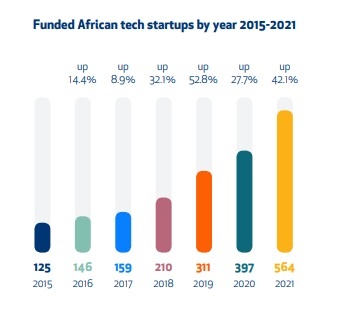
In 2015, the first year we began collecting data, only 125 startups received funding. Since then, the number of African startups raising funding each year has increased by 351.2%, while total funding has grown even faster. In 2015, the continent’s startups raised a total of US$185,785,500, which dropped to US$129,113,200 in 2016.
Following that, however, the growth began, and 2021’s unprecedented success means that total annual funding for African tech startups has increased by 1,056.5% since 2015.
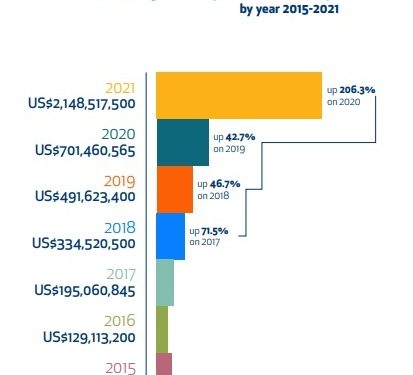
The average transaction size has more than doubled year on year, rising to US$3,809,428 in 2020 from US$1,766,903 in 2019. Over the last few years, average deal sizes have risen, dipped, and plateaued to varying degrees, but they now appear to be on an upward trend. In 2021, 205 startups raised $1 million or more, accounting for 36.3 percent of the total. This was up from 110 (27.7%) in 2020 and 81 (26%) in 2019.
Meanwhile, Flutterwave, MNT-Halan, TradeDepot, Gro Intelligence, and Yoco broke the record for the largest round ever raised by an African tech startup on multiple occasions this year, with notable amounts raised by Flutterwave, MNT-Halan, TradeDepot, Gro Intelligence, and Yoco.
More investors are smelling opportunity in Africa
Unsurprisingly, given the significant increase in total funding, a growing number of investors are active in Africa. Nonetheless, the magnitude of growth in this area is still very impressive.
According to our report, there were at least 771 different disclosed investors in African tech startups in 2021, a 108.4% increase from the 370 tracked in 2020. The number of investors in the sector has been growing at an exponential rate, reflecting the increased interest in the space and the increased confidence in impressive returns.
These investors come in all shapes and sizes, with early-stage funds like Launch Africa Ventures, Kepple Africa Ventures, and Musha Ventures being the most active. Local and international accelerators, such as Y Combinator, Techstars, and Flat6Labs, are very active, as are a number of very active locally-focused angel networks. Successful African founders, such as Paystack’s Shola Akinlade, mPharma’s Gregory Rockson, and Flutterwave’s Olugbenga Agboola, are increasingly backing startups themselves, indicating the ecosystem’s maturation.
At later stages, there are a slew of international and domestic venture capital firms active in the market, with the number of firms investing at Series A and beyond increasing year after year.
Major global investors such as Tiger Global and Sequoia Capital have recently made their first forays into Africa, and there has also been an increase in African corporates supporting local startups, most notably in South Africa with Naspers, Standard Bank, and Nedbank. With increased investor interest and activity at all stages, and long-standing funding gaps steadily closing, the future health of the African startup landscape appears to be very promising.
Africa is still in its early stages, with issues to be addressed.
Despite its rapid development, Africa remains a relatively early-stage startup ecosystem, as evidenced by the figures for stage of round and age of funded ventures.
The stage of funding was disclosed in 316 of the 564 African tech startups funded in 2021. The majority of the 316 rounds – more than 70% – were at the seed and pre-seed stage.
Though investment in Africa remains an equity-focused game, we are seeing increased activity at later stages, with 47 Series A, 12 Series B, and three Series C funding rounds taking place over the course of 2021. Only 27 (4.8 percent) of the funded startups tracked for this publication reported any debt in any of their rounds.
Meanwhile, given the prevalence of seed and pre-seed rounds, it is unsurprising that the majority of African tech startups that raised funding in 2021 were founded in the previous three years.
As an early-stage ecosystem, the continent’s startup scene is bound to face diversity challenges. Despite the optimism, African tech still has a gender problem, with only 121 – 21.5 percent – of the 568 funded startups in 2021 having a woman on their founding team.
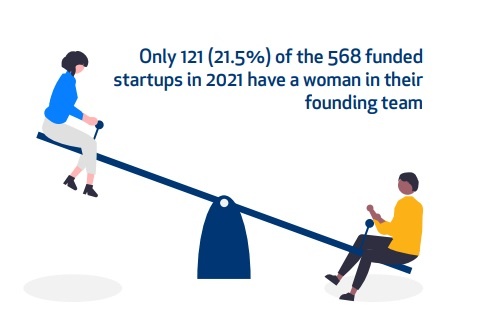
As the sector grows and matures, however, we would expect to see such issues addressed.
What cannot be denied are the achievements of an exceptional year, and we all keenly look to 2022 – which has started very well indeed! – to see what new records will tumble in the African tech startup ecosystem. Onwards!


